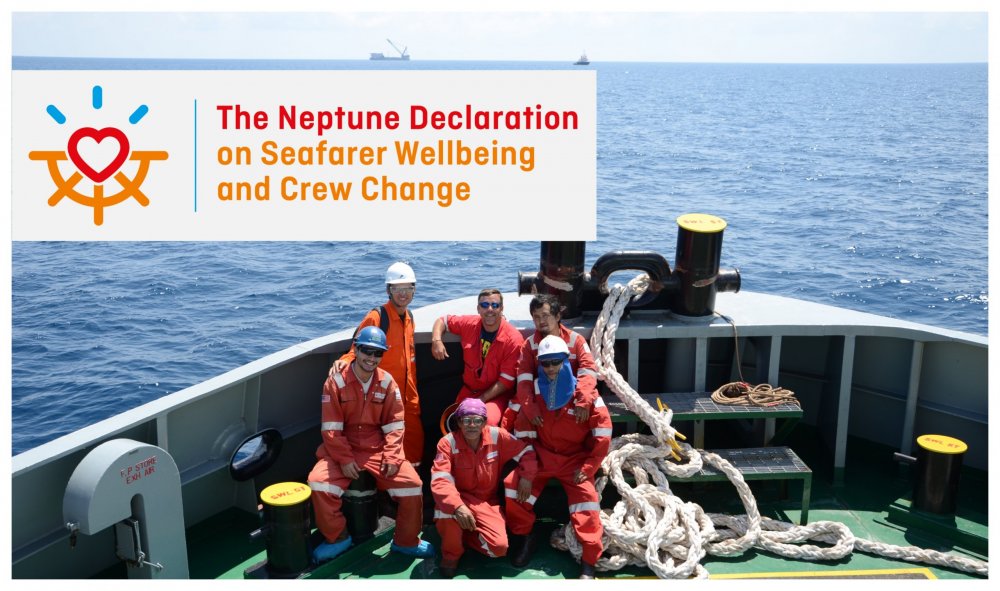Travel restrictions, flight cancellations and domestic lockdowns continue to prevent seafarers from going back home. This is according to reporting from the world’s top ship managers provided for the Neptune Declaration Crew Change Indicator. But there could be light at the end of the tunnel. After months of deterioration, the September Indicator shows that the number of seafarers onboard vessels beyond the expiry of their contract has slightly decreased from 9.0% to 8.9% in the last month. Similarly, the number of seafarers onboard vessels for over 11 months has slightly decreased from 1.3% to 1.2%. The Maritime Labour Convention states that the maximum continuous period a seafarer should serve on board a vessel without leave is 11 months. Thus, the September Indicator confirms the tendency from August that the situation may be stabilizing.
The September Indicator has another bright spot. The Neptune Declaration on Seafarer Wellbeing and Crew Change calls for seafarers to be recognized as key workers and given priority access to Covid-19 vaccines. New numbers suggest that programs set up to offer vaccines to international seafarers, especially in the US and some European countries, are starting to kick in. The September Indicator shows that the aggregate percentage of seafarers who have been vaccinated has risen from 15.3% in August to 21.9% in September.
“It is very encouraging to see that the number of seafarers who have been vaccinated has increased by 6.6 percentage points in the last month. But there is room for improvement. Vaccination rates remain behind large shipping nations in Europe, North America and Asia where more than 50% of the population is fully vaccinated,” says Kasper Søgaard, Managing Director, Head of Institutional Strategy and Development, Global Maritime Forum.
Ship managers report for the first time that they are facing a shortage of seafarers and cite travel restrictions for Indian seafarers and the European summer holiday period as causes. Still governments and ports are placing stricter crew change requirements which have resulted in the cancellation of crew changes.
Despite the progress in seafarer vaccinations, ship managers highlighted that there continues to be limited access to Covid-19 vaccines for seafarers due to supply issues. Furthermore, ensuring access to the second dose of the vaccine remains a challenge and, in many cases, there is a significant gap between the two doses for seafarers. Ship managers also report reluctance by some seafarers to get vaccinated.
The Neptune Declaration Crew Change Indicator builds on aggregated data from 10 leading ship managers: Anglo-Eastern, Bernhard Schulte, Columbia Shipmanagement, Fleet Management (FLEET), OSM, Synergy Marine, Thome, V.Group, Wallem, and Wilhelmsen Ship Management, which collectively have about 90,000 seafarers currently onboard.
The Neptune Declaration Crew Change Indicator is published once a month and builds on aggregated data provided by the ship managers to the Global Maritime Forum. The data is used to calculate a weighted average of the percentage of seafarers who have been onboard vessels beyond the expiry of their contract of employment, a weighted average of the percentage of seafarers who have been onboard vessels for over 11 months, and a weighted average of the percentage of seafarers who have been vaccinated. As top ship managers are making significant efforts – and are often better placed – in facilitating crew changes, the Neptune Declaration Crew Change Indicator cannot be used directly to calculate the full numbers of seafarers impacted by the crew change crisis. Likewise, the calculated percentage of seafarers who have been vaccinated is likely to overestimate the actual proportion of vaccinated seafarers.
Source: Hellenic Shipping News






